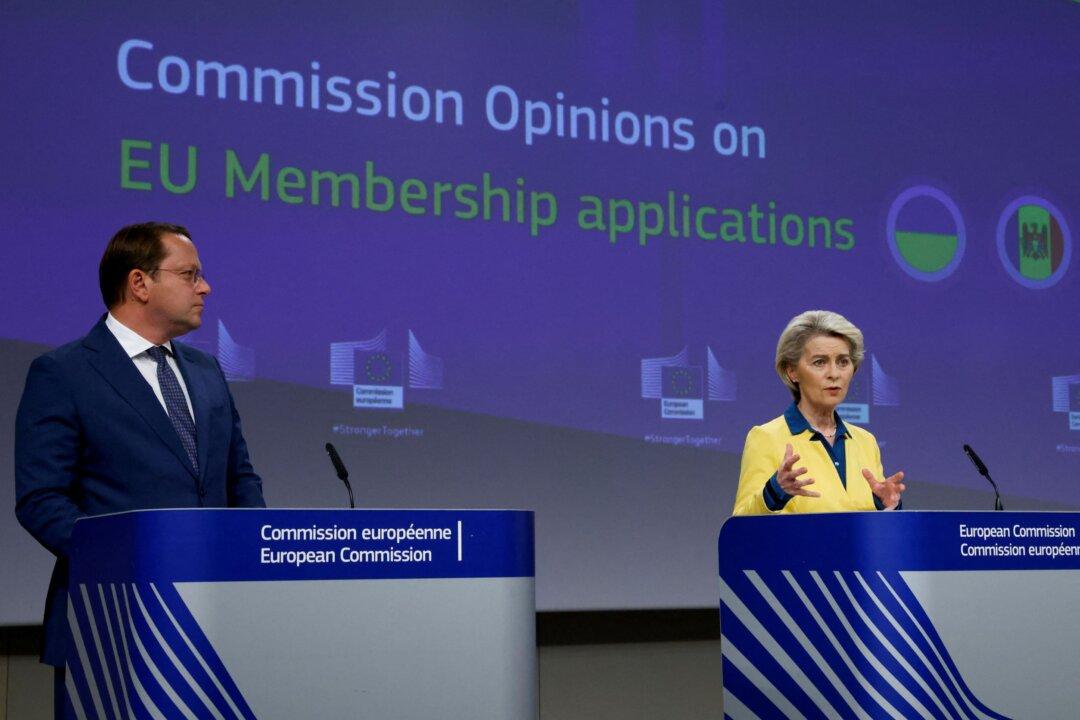BRUSSELS/KYIV, Ukraine—The European Union gave its blessing on Friday to Ukraine to become an official candidate to join the bloc, along with its neighbor Moldova, a historic eastward shift in Europe’s outlook brought about by Russia’s invasion.
Ukraine applied to join the EU just four days after Russian troops poured across its border in February. Four days later, so did Moldova and Georgia.





